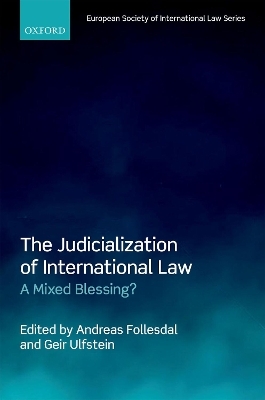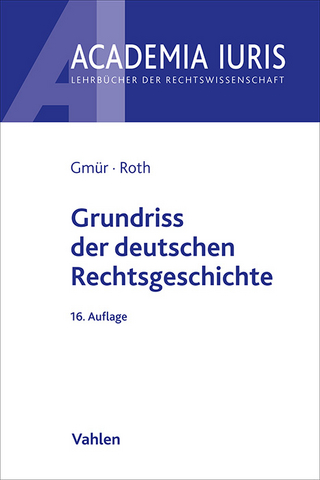
The Judicialization of International Law
Oxford University Press (Verlag)
978-0-19-881642-3 (ISBN)
The influence of international courts is ubiquitous, covering areas from the law of the sea to international criminal law. This judicialization of international law is often lauded for bringing effective global governance, upholding the rule of law, and protecting the right of individuals. Yet at what point does the omnipresence of the international judiciary shackle national sovereign freedom? And can the lack of political accountability be justified?
Follesdal and Ulfstein bring together the crème de la crème of the legal academic world to ask the big questions for the international judiciary: whether they are there for mere dispute settlement or to set precedent, and how far they can enforce international obligations without impacting on democratic self-determination.
Andreas Follesdal is a Professor of Political Philosophy at the University of Oslo, as well as the Co-Director of PluriCourts, a Centre of Excellence for the Study of the Legitimate Roles of the Judiciary in the Global Order. He has been the Principal Investigator in the European Research Council Advanced Grant MultiRights, which investigated the legitimacy of the multi-level human rights judiciary. With a Ph.D. in Philosophy from Harvard University, Follesdal publishes in the field of political philosophy, mainly on issues of international political theory, globalisation, Europeanisation, Human Rights, and Socially Responsible Investing. Geir Ulfstein is a Professor of Law at the University of Oslo, the Co-Director of PluriCourts, this being the Centre for the Study of the Legitimate Roles of the Judiciary in the Global Order, as well as the Director of the Norwegian Centre for Human Rights at the University of Oslo. He has published in different areas of international law, including the law of the sea, international environmental law, international human rights and international institutional law, he is Co-chair of the International Law Association's Study Group on the 'Content and Evolution of the Rules of Interpretation', and is the Vice-Chair of the Scientific Advisory Board in Luxembourg.
I - General Perspectives
1: Jochen von Bernstorff: Specialized Courts and Tribunals as the Guardians of International Law? The Nature and Function of Judicial Interpretation in Kelsen and Schmitt
2: Niels Blokker: The Governance of International Courts and Tribunals: Organizing and Guaranteeing Independence and Accountability
II - The Workings of ICs
3: Jerneja Penca: Escaping from law, appealing to it: The experience of a civil society 'tribunal'
4: Christiane Gerstetter: Substance and Style - How the WTO Adjudicators Legitimize their Decisions
5: Jeffrey Dunoff and Mark Pollack: A Typology of International Judicial Practices
III - Backlash/Criticism
6: Kjersti Lohne: NGOs for International Justice: Criminal or Victims' Justice?
7: Malcolm Langford, Daniel Behn and Runar Lie: The Revolving Door in International Investment Arbitration
8: David Caron and Esme Shirlow: Dissecting Backlash: The Unarticulated Causes of Backlash and its Unintended Consequences
9: Erik Franckx and Marco Benatar: Non-Participation in Compulsory Procedures of Dispute Settlement: The People' Republic of China's Position Paper in the South China Sea Arbitration and Beyond
IV - Responding to Fragmentation
10: Dominika Svarc: The Contribution of International Court of Justice to the Promotion and Protection of Human Rights
11: Alain Pellet: Should We (Still) Worry about Fragmentation?
V - Epilogue
12: Philippe Sands: Judicialization and its Challenges
| Erscheinungsdatum | 17.04.2018 |
|---|---|
| Reihe/Serie | European Society of International Law |
| Verlagsort | Oxford |
| Sprache | englisch |
| Maße | 167 x 241 mm |
| Gewicht | 582 g |
| Themenwelt | Recht / Steuern ► Allgemeines / Lexika |
| Recht / Steuern ► EU / Internationales Recht | |
| ISBN-10 | 0-19-881642-1 / 0198816421 |
| ISBN-13 | 978-0-19-881642-3 / 9780198816423 |
| Zustand | Neuware |
| Haben Sie eine Frage zum Produkt? |
aus dem Bereich


